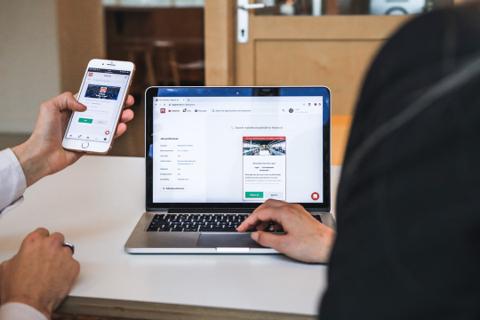
Local Government Procurement: Winning Contracts and Tenders
Local government procurement is crucial for delivering efficient and cost-effective public services. It involves complex processes and strategic decisions that significantly impact a council's ability to serve its community. Successful procurement requires a well-planned approach, clear objectives, and a focus on adding value.
Key Challenges and Strategies
Balancing Value and Responsibility
Councils must balance the need for value for money with social and environmental responsibilities.
Strategic Planning
The National Procurement Strategy emphasises the importance of strategic planning, internal controls, and commercial awareness.
Innovative Approaches
Adopting best practices and innovative approaches can help maximise opportunities in supply chains and deliver better community outcomes.
Effective Contract Management
Developing strong relationships with suppliers, monitoring performance, and ensuring compliance with agreed terms is crucial.
Local Government Leadership in Procurement
Local authorities require highly skilled procurement professionals to strategically drive organizational value. Procurement champions are essential in elevating the function's strategic importance, advocating for continuous improvement, and developing specialized talent. By investing in comprehensive training programmes and structured mentoring schemes, councils can build deep expertise in critical areas such as complex contract management, strategic negotiation, and innovative procurement practices.

Strategic Leadership
Developing procurement capabilities that balance public service values with dynamic commercial approaches

Talent Development
Creating comprehensive professional development pathways through targeted training and mentorship initiatives

Commercial Excellence
Implementing sophisticated market engagement strategies and advanced supplier relationship management techniques

Procurement Integrity
Establishing robust governance frameworks that ensure transparency, fairness, and ethical conduct across procurement processes
Innovative Approaches to Procurement
Digital Technology
Online platforms for contract management and supplier communication, e-auctions for real-time bidding, and data analytics for smarter purchasing decisions.
Sustainable Practices
Focus on long-term value, product lifecycle, energy efficiency, and supplier carbon footprint. Emphasis on local sourcing and green energy procurement.
Emerging Technologies
Exploration of blockchain for secure and transparent record-keeping, and artificial intelligence for efficient bid sorting and deal identification.
Future of Local Government Procurement

Procurement Act 2023
Transforming public procurement from February 2025 with streamlined procedures, mandatory 10% social value weighting, and real-time transparency portals. These changes will simplify bidding processes while maximizing public benefit.
Sustainability Focus
Integration of carbon footprint metrics, circular economy principles, and social impact assessments in tender evaluations. Local authorities will prioritize suppliers demonstrating strong environmental credentials and community benefits.
Digital Transformation
Revolutionary shift towards AI-powered e-procurement platforms, blockchain-based contract management, and predictive analytics for spend optimization. These technologies will reduce processing times by 40% and enhance value for money.
Collaborative Procurement
Formation of regional procurement hubs and shared service arrangements between councils, enabling bulk purchasing power and expertise sharing. This approach is projected to deliver 15-20% cost savings while improving service quality.
Frequently Asked Questions
Local government procurement involves specific procedures and strategic considerations. Companies must understand tender processes, guidelines, and best practices to successfully bid for contracts.
What steps must be followed in the tender process within local governments?
The tender process involves: identifying needs, creating detailed specifications, publicly advertising opportunities, receiving supplier bids, evaluating submissions against set criteria, and awarding the contract.
Council tendering aims to ensure fair, efficient purchasing that delivers best value for money.
Which guidelines are essential for local authority procurement policies?
Local authorities must follow guidelines ensuring transparency, fairness, and compliance with UK regulations. Procurement prioritizes value for money, considering quality, long-term benefits, sustainability, and social impact.
How can a company be successful in local government contract bids?
Success requires thoroughly understanding tender requirements, demonstrating clear capability, and providing evidence of past performance. Companies should highlight value beyond economic factors, including community and environmental benefits.
What are the key components of local government procurement rules and regulations?
Key components include ensuring fair competition, equal supplier treatment, open opportunity advertising, and objective evaluation processes. Rules increasingly emphasize social value and environmental sustainability.
How does the national procurement strategy impact local government purchasing?
The National Procurement Strategy prioritizes leadership, commercial behaviour, and community benefits. It encourages councils to consider broader value beyond mere cost.
What best practices should be adopted to develop a robust procurement strategy in the public sector?
Best practices include defining clear objectives, engaging stakeholders, using data-driven decision making, embracing technology, and providing ongoing staff training to maintain procurement excellence.